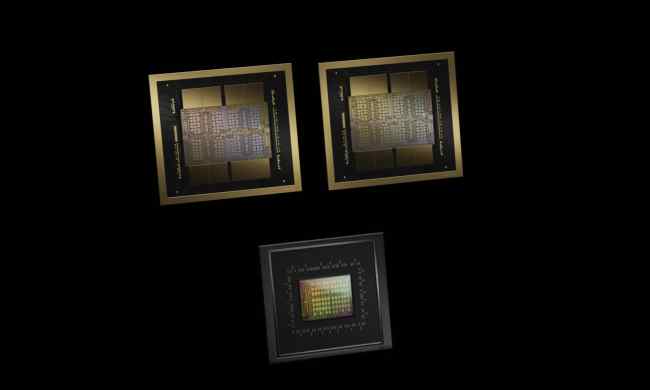LAPSUS$, the South American-based hacking group responsible for the 1TB Nvidia hack, has released a new statement outlining additional demands it wants the GPU giant to commit to.
Meanwhile, another leak emerging from the cyber breach has reportedly resulted in Nvidia’s proprietary DLSS source code making its way online.

As reported by VideoCardz, the statement, which was released via the group’s Telegram channel where it provides updates regarding the hack, has provided some further insight into exactly what they managed to obtain from the cybersecurity incident.
Specifically, LAPSUS$ said that it attained an astonishing 250GB of data pertaining to Nvidia’s hardware alone. That obviously doesn’t represent a few files and some blueprints, but rather a substantial amount of sensitive information that can potentially damage the chipmaker.
Case in point: The group confirmed it extracted the complete file set for Nvidia’s silicon, graphics, and computer chipsets related to Team Green’s recent GPUs, “including the RTX 3090 Ti and upcoming revisions. Of course, this includes all files with extensions such as .v, .vx, .vg, and more.”
Although these files have yet to be released, the group threatened to make them available for download if Nvidia doesn’t commit to “completely open-source (and distribute under a foss license) [its] GPU drivers for Windows, macOS, and Linux, from now on and forever.”

Should the demand not be fulfilled by Nvidia, LAPSUS$ stressed it will release the entire file set on Friday. The importance surrounding such information shouldn’t be understated. It could prove to have huge implications for Nvidia, as echoed in the hacking group’s Telegram message:
“Not [making] the drivers open source, making us release the entire silicon chip files so that everyone not only knows your drivers’ secrets, but also your most closely-guarded trade secrets for graphics and computer chipsets too.”
Elsewhere, due to the first batch of data that was leaked by the group on Monday, Nvidia’s DLSS source code has now apparently been published. As reported by PCGamer, an individual sent TechPowerUp a screenshot seemingly showing DLSS 2.2 files, including C++ files and assets. A programming guide for developers also made an appearance.
Nvidia DLSS is the company’s resolution scaling technology, which is the leader in this specific space due to its compatibility with both AMD and Intel graphics cards through lossless scaling. As such, if the valuable algorithm’s leak does indeed prove to be real, it could subsequently reveal the secret behind Team Green’s “groundbreaking AI rendering technology” that enhances graphical performance for video games.
Alongside the reported publication of Nvidia’s DLSS source code, other users who downloaded the initial leak also led to purported details related to the company’s next-gen GPUs being unveiled as well. Furthermore, LAPSUS$ claims to possess Nvidia’s algorithm behind its crypto mining limiter, which it threatened to release should the chipmaker not meet its demands. It also obtained other “documentation, private tools, and SDKs,” which, when considering the number of recent leaks, may very well continue to trickle out in the near future.




